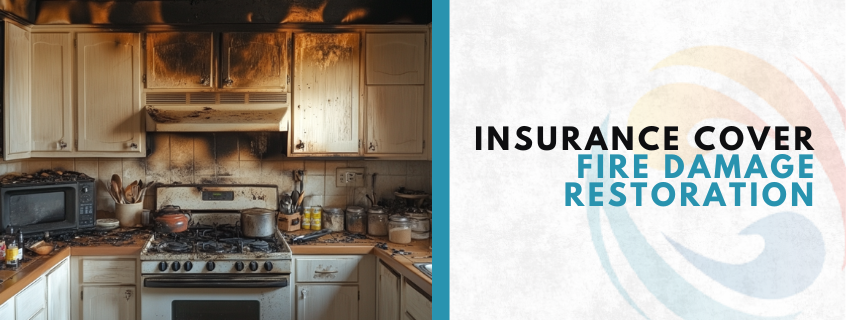
Imagine cooking dinner when suddenly, a small kitchen mishap turns into a full-blown fire. You manage to extinguish it, but your kitchen and living room are severely damaged by flames, smoke, and water. As you stand amidst the damage, the pressing thought emerges: Will my insurance cover fire damage? Understanding if your insurance covers fire damage is essential for homeowners like you. Knowing how insurance covers fire damage can significantly impact your recovery.
Understanding whether your insurance covers fire damage is essential for homeowners concerned about potential losses. Knowing how insurance cover fire damage can affect your financial recovery is crucial.
It’s vital to ensure that your insurance covers fire damage adequately, as this can safeguard your financial future in adverse situations.
Thinking about whether your insurance covers fire damage can provide peace of mind as you navigate homeownership.
Being aware of whether your insurance covers fire damage will help you prepare better for potential incidents.
Many homeowners often wonder if their insurance covers fire damage effectively. Knowing the answer can reduce stress during emergencies.
Understanding the details of how your insurance covers fire damage allows you to take necessary precautions and avoid pitfalls.
Knowing if your insurance covers fire damage can save you from financial strain should disaster strike.
When assessing your policy, be certain of how your insurance covers fire damage to your home’s structure.
This insight will enhance your understanding of how insurance covers fire damage in various contexts.
It’s crucial to examine how your insurance covers fire damage before disaster strikes, ensuring you are not caught off guard.
Inquiring about how insurance covers fire damage can lead to better preparedness.
Asking your insurance agent directly about how your insurance covers fire damage can provide valuable clarity.
Consider how dwelling coverage specifically illustrates how your insurance covers fire damage to your property.
Understanding how insurance covers fire damage can also save you from unforeseen costs if a fire occurs.
Understanding your policy on how insurance covers fire damage will enable you to take preventive measures.
Personal property coverage is a critical element that shows how your insurance covers fire damage affecting your belongings.
This type of coverage emphasizes how your insurance covers fire damage to valuable personal items.
Dwelling coverage typically indicates how your insurance covers fire damage affecting your home’s structure.
Understanding dwelling coverage offers insights into how insurance covers fire damage to the physical structure of your home.
This coverage is integral to how your insurance covers fire damage and can be crucial for your financial safety.
When assessing your policy, determine if it includes coverage for fire damage. This can greatly influence your options when disaster strikes and can help you understand how your insurance covers fire damage effectively.
This question is critical and common among homeowners. Understanding whether your insurance covers fire damage can significantly impact how quickly and effectively you recover. Let’s break down everything you need to know clearly and comprehensively.
Be sure to ask your agent how your insurance covers fire damage and what specific incidents are included in your policy.
Dwelling coverage is a crucial component of how your insurance covers fire damage, ensuring that the structure of your home can be repaired or rebuilt.
Understanding Standard Home Insurance Coverage
Homeowners’ insurance usually offers comprehensive fire protection, typically through three key coverages:
Personal property coverage also illustrates how your insurance covers fire damage affecting your belongings.
Knowing how your insurance covers fire damage can significantly aid in your claims process when necessary.
This protection emphasizes how your insurance covers fire damage to your personal items like electronics and furniture.
Dwelling Coverage
This covers structural damages, including:
- Walls, ceilings, and floors
- Roofing and attached garages
- Built-in appliances and cabinetry
Personal Property Coverage
Having personal property coverage is another way your insurance covers fire damage, protecting your belongings from loss or destruction.
This protection is for belongings damaged by fire, such as:
Understanding how insurance covers fire damage is essential for ensuring that your belongings are protected.
Knowing how insurance covers fire damage will allow you to navigate your claims efficiently if necessary.
- Electronics
- Furniture
- Clothing
- Kitchen utensils
Additional Living Expenses (ALE)
If your home is uninhabitable due to fire, ALE helps cover:
- Temporary hotel stays
- Restaurant meals
- Laundry services
Though basic homeowners’ policies typically include these coverages, confirming the details with your insurance agent is crucial.
Ensuring that you know how insurance covers fire damage ensures that you are well-prepared for emergencies.
Clarifying how insurance covers fire damage helps in avoiding misunderstandings during claims.
Identifying the types of fires that your insurance covers fire damage to can streamline the claims process.
These expenses are often included in how insurance covers fire damage, allowing you to maintain some quality of life while repairs are made.
Types of Fires Typically Covered by Insurance
Insurance policies generally cover accidental and sudden fires, including:
- Electrical fires
- Cooking accidents
- Heating equipment failures
- Lightning-induced fires
- Wildfires
If your fire damage matches these scenarios, your insurance coverage for fire damage is likely applicable.
Fires Usually Excluded from Coverage
There are scenarios where insurance coverage for fire damage does not apply:
Familiarizing yourself with how insurance covers fire damage helps you know what to expect.
It is essential to understand how your insurance covers fire damage exclusions to avoid surprises.
Understanding which types of fires are covered by your policy is vital for making sure that your insurance covers fire damage appropriately.
- Intentional fires
- Fires occurring in long-term vacant homes (30-60 days or more)
- Fires linked to illegal activities
- Damage from extreme negligence (e.g., unattended candles)
Assessing how your insurance covers fire damage relates to knowing the conditions under which it applies.
Always read the fine print and clarify these points with your agent.
Filing a Fire Damage Insurance Claim: Step-by-Step
Prompt action after fire damage is vital. Follow these steps:
- Call emergency services immediately.
- Contact your insurance company to report the fire.
- Document damage thoroughly with photos and videos.
- List and itemize all damaged belongings.
- Secure your property to prevent further damage.
- Keep detailed receipts of all repair and lodging costs.
Documenting these incidents helps ensure that your insurance covers fire damage to your property effectively and without complications.
Acting swiftly ensures your insurance covers fire damage without unnecessary complications.
Being aware of what your insurance covers fire damage will help you manage expectations in emergencies.
Understanding the exclusions is just as important as knowing how your insurance covers fire damage.
Avoiding Common Insurance Claim Mistakes
Take proactive steps to ensure your insurance covers fire damage comprehensively for your peace of mind.
Many homeowners inadvertently harm their claims by:
- Delaying the report of fire damage
- Cleaning up before documenting damage
- Discarding damaged items prematurely
- Misunderstanding their coverage limits
Stay informed to ensure your insurance covers fire damage effectively.
Does Renters’ Insurance Cover Fire Damage?
Absolutely! While your landlord’s policy protects the building, your personal belongings require renters’ insurance, covering:
- Clothing
- Electronics
- Furniture
- Books and personal items
For situations that are not covered, it can be helpful to clarify with your agent how your insurance covers fire damage in various scenarios.
Renters’ policies also typically cover temporary living arrangements after a fire.
Providing all relevant details ensures that your insurance covers fire damage without any misunderstandings.
Addressing Smoke and Water Damage
Fire often leads to extensive smoke and water damage, both typically covered by your insurance policy. Verify specifically about mold coverage, as this may require additional policy enhancements.
Ensuring Comprehensive Fire Damage Coverage
To confidently ensure your insurance covers fire damage fully:
- Annually review your insurance policy
- Check dwelling and personal property coverage limits
- Purchase additional coverage for high-value items
- Ensure mold and water damage coverage is included
- Maintain a detailed inventory of personal belongings
How Restoration Companies Support Your Claim
Professional restoration experts significantly ease post-fire recovery, offering:
- Smoke and soot removal
- Structural repairs
- Mold prevention
- Assistance with insurance paperwork
Engaging professionals promptly improves your chances of maximizing your claim benefits and expedites restoration.
By avoiding these mistakes, you can ensure that your insurance covers fire damage effectively.
Starting Restoration Work: Why Speed Matters
Delay worsens fire damage, making restoration harder and costlier. Immediate action prevents irreversible damage, speeds up your recovery, and helps your insurance cover fire damage more comprehensively.
Choosing Your Restoration Provider
You have the right to select your restoration company, even if your insurance provides recommendations. Choose reputable, licensed, and insured professionals who are experienced in coordinating with insurance companies.
Your personal belongings are usually covered under how your insurance covers fire damage, providing necessary protection.
Critical Insurance Terms You Should Know
Understanding these terms improves your claim experience:
- Deductible: The initial amount you pay before insurance coverage applies.
- Actual Cash Value (ACV): Item value accounting for depreciation.
- Replacement Cost: Cost to replace items with similar new ones.
- Exclusion: Conditions explicitly not covered.
- Rider/Endorsement: Optional coverage additions for specific items/events.
Renters should understand how their insurance covers fire damage to ensure all personal items are protected.
Regular Check-ins with Your Insurance Agent
Contact your agent regularly:
Moreover, understanding how your insurance covers fire damage can alleviate difficulties in recovery.
- Before fire seasons
- Post home renovations
- After acquiring expensive items
- Annually for policy review
Regular interactions ensure your coverage remains adequate.
Handling a Denied Fire Damage Claim
If your claim is denied, remain proactive:
- Request a detailed explanation
- Review and challenge the denial if justified
- Engage a public adjuster
- Consider appealing with additional documentation
- Consult legal advice if needed
Fire Damage Prevention: Essential Safety Measures
Smoke and water damage are critical components to consider when assessing how your insurance covers fire damage.
To ensure your insurance covers fire damage comprehensively, it’s essential to understand all aspects of your policy.
Minimizing fire risk is the best precaution:
- Install and test smoke alarms regularly
- Avoid unattended cooking
- Keep flammable materials safely stored
- Use heating appliances carefully
- Maintain accessible fire extinguishers
- Develop a family escape plan
Choosing the Best Insurance Policy for Fire Protection
When selecting home insurance, prioritize:
- Comprehensive dwelling coverage
- Replacement cost policy
- Clear and reasonable deductibles
- Reliable customer service and claim handling
A robust policy provides reassurance that your insurance covers fire damage comprehensively and meets your needs.
Understanding these terms can help clarify how insurance covers fire damage and other related incidents.
Final Thoughts
Understanding how your insurance covers fire damage can greatly influence your recovery options.
Understanding whether your insurance cover fire damage is crucial to navigating the stressful aftermath of a fire incident. Homeowners often wonder if their standard homeowners’ policy will sufficiently insurance cover fire damage, or if additional coverage may be required. To ensure your insurance cover fire damage effectively, always carefully review the terms outlined in your policy or discuss it directly with your insurance provider. Many policies typically do insurance cover fire damage, but specific conditions and limitations can vary widely. Therefore, confirming exactly how comprehensively your insurance cover fire damage ahead of time can save you from unexpected financial stress in an emergency.
When disaster strikes, knowing exactly how your insurance cover fire damage can significantly ease the recovery process. Many homeowners mistakenly assume that their standard policy automatically provides comprehensive insurance cover fire damage, only to discover gaps when making a claim. To ensure you’re adequately protected, regularly review your policy documents to understand precisely what your insurance cover fire damage includes and excludes. Additionally, having open communication with your insurer can clarify potential misunderstandings and ensure that your insurance cover fire damage is tailored specifically to your needs. Taking proactive steps now guarantees that your insurance cover fire damage won’t leave you unprotected during critical moments.
Determining whether your insurance cover fire damage effectively is a critical step every homeowner must take seriously. Misunderstandings regarding how thoroughly insurance cover fire damage can result in significant financial losses following a fire incident. It’s important to consult with your insurer to confirm the specifics of how your policy ensures your insurance cover fire damage needs are adequately met. In many cases, homeowners assume that standard policies universally insurance cover fire damage, but limitations or exclusions often apply. Carefully verifying the details can guarantee that your insurance cover fire damage offers comprehensive protection during challenging times.
Evaluate your insurance policy to ensure it covers fire damage effectively and aligns with your needs.
Understanding precisely how insurance covers fire damage gives you peace of mind and preparation for any scenario. Regular policy checks, choosing professional restoration support, and acting quickly can significantly streamline your recovery process. Don’t wait until it’s too late—ensure your coverage is solid today.
As you start your restoration process, ensure that your understanding of how insurance covers fire damage remains clear.
FAQs About Fire Damage Insurance Coverage
Ultimately, knowing how your insurance covers fire damage is key to navigating the complexities of potential claims.
Choosing the right policy also involves understanding how your insurance covers fire damage in various contexts.
1. Will my home insurance pay for fire damage to my house and belongings?
Yes, most standard home insurance policies cover fire damage to your home’s structure (like walls, ceilings, and roofs) and your personal belongings (like furniture, clothing, and electronics). It often also pays for temporary living costs if your home is unsafe after the fire.
2. What if the fire was caused by something I accidentally did? Will insurance still cover it?
In most cases, yes. If the fire was accidental, like from cooking, a candle, or a space heater, your insurance will likely cover the damage. However, if the fire was set intentionally or caused by illegal activity, the damage may not be covered.
3. I rent my home. Does renters’ insurance help if there’s a fire?
Absolutely. If you have renters’ insurance, it usually covers your personal items damaged by fire. It may also pay for a hotel or other temporary living costs while your rental is being repaired.
4. How do I start a fire damage claim with my insurance?
Start by calling your insurance company as soon as it’s safe. Take pictures and videos of the damage, make a list of everything affected, and keep all repair and hotel receipts. Quick and complete information helps your claim get approved faster.
5. Can I choose my own fire damage restoration company?
Yes, you can. Insurance companies might suggest one, but the choice is yours. Make sure you pick a trusted company with experience in fire restoration and working directly with insurance adjusters.
If a fire damage claim is denied, knowing your rights can help you advocate for how your insurance covers fire damage.
Taking preventative measures can significantly reduce your risk and ensure your insurance covers fire damage should an incident occur.
Evaluating policies with a focus on how insurance covers fire damage is essential when making your selection.
Having clarity on how insurance covers fire damage will help you in the long run.
Knowing how insurance covers fire damage aids you in making informed decisions about your protection.
Understanding your coverage regarding how insurance covers fire damage is vital for all homeowners.
Evaluate your policy regularly to ensure it comprehensively covers fire damage.
Ultimately, ensuring that your insurance covers fire damage effectively is essential for your peace of mind.


